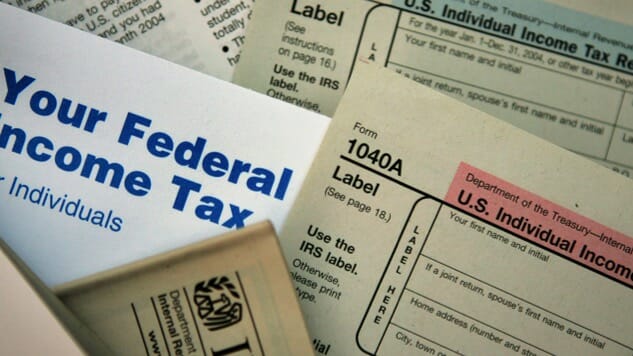Tax Reform Is Simple: Tax the Rich
Photo by Scott Olson
House Speaker Paul Ryan and President Donald Trump are moving on to their next big policy change: tax reform. Here’s a quick overview of what we know so far about the potential legislation: tax cuts across the board, with a heavy emphasis on the rich and, at best, performative relief for middle and lower income Americans.
When the GOP starts talking tax reform, the Democratic Party should demand that the conversation begin with a 91 percent tax on all income over $10 million. This is a reasonable tax. It only affects around 300,000 Americans. But lest you think that’s unfairly targeting a minority of the country, consider this: 1 percent of Americans control over $1.37 trillion of the nation’s wealth. They have enough. It’s well past time they started paying their share.
A 90 percent tax rate on earnings of over $10 million could result in almost $600 billion in tax revenues on only the top 1 percent of the top 1 percent of Americans, who average a yearly income of around $30 million according to a 2014 study by The Atlantic ($20 million by 90 percent, or $18 million times 31,800, or .01% of the country’s population of 318 million). That’s enough to almost wipe out the $638 billion deficit in one year.
It’s not as if a high tax on the rich isn’t a politically plausible idea. The idea regularly polls well with a majority of Americans. In February, post-election polling by Quinnipiac found that Americans oppose lowering taxes on the rich by a two-to-one margin. Americans have been telling pollsters for over a decade that the rich pay too little in taxes. Raising the rates on the wealthy seems like a simple and politically palatable solution to tax reform.
Pushing for high taxes on the nation’s super-rich would be a winning strategy for the Democrats, though that’s hardly a guarantee they’ll take the opportunity. The party has been stuck in an endless Ouroboros feedback loop of bad political decisions to support their donor base for decades. But perhaps this time, with Trump as the president and with an angry, demanding base, the Democrats will finally take a stand.
-

-

-

-

-

-

-

-

-

-

-

-

-

-

-

-

-

-

-

-

-

-

-

-

-

-

-

-

-

-

-

-

-

-

-

-

-

-

-

-








































